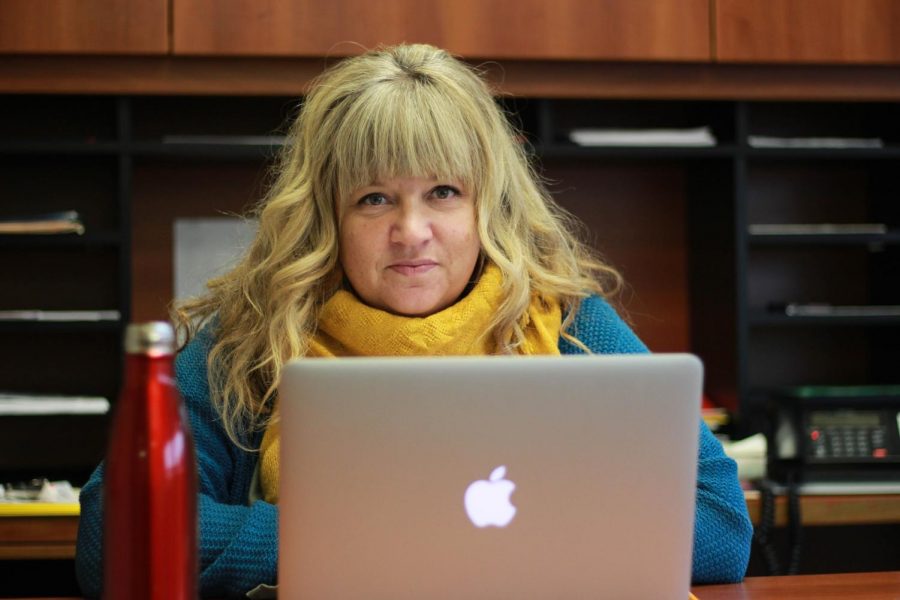Ms. Kristen Gilberston guides BSM students through learning
Ms. Kristen Gilberston is the Director of Learning Support here at BSM and works to give students the acommodations needed for them to thrive.
Ms. Kristen Gilbertson is the learning specialist at BSM and supports students with accommodation needs.
ADHD, Dyslexia, Dysgraphia, Anxiety: these words come up frequently in society today whether that be through classes such as Life (8th grade) or Psychology (offered to seniors), conversations with parents or friends, or simply hearing about programs offered to aid those with learning differences or mental illnesses. What you may not know about those four words is they are the four most common conditions affecting students academically at BSM.
All of these conditions put the affected students at a definite disadvantage academically and can affect their grades, confidence, and overall academic performance, hindering their ability to reach their full potential. According to Understood, “[students] with learning disabilities are at higher risk for discipline issues and dropping out of school.” This is why, BSM’s junior high and high school are dedicated to providing a plethora of resources for students with learning disabilities in order to help them thrive in and out of school.
There are a variety of students at BSM that use the learning support programs. “We have approximately 250 students on accommodation plans,” director of Learning Support Ms. Kristin Gilbertson said. With a student body of 1158, that means that approximately 20% of students who attend BSM are involved in the learning support programs offered to them. However, with such a wide range of conditions affecting individual students, BSM has worked hard to develop programs to assist the needs of each student.
BSM works to help every student in their own unique way. “We individualize the support depending on the kid but every kid gets an accommodation plan…There [are] two different ways that works. In quiet study students get support from Ms. Barry and that’s not necessarily kids with accommodation plans it could just be any kid with under a 2.0 [GPA] or kids choose quiet study because they know [they] do better with that support,” Gilbertson said.
We have approximately 250 students on accommodation plans.
— Ms. Kristen Gilbertson
Learning Support Specialist Ms. Sandra Barry works alongside Gilbertson to help support students in these programs. Barry is in charge specifically of “quiet study”: a place where students can go get help with their academics to stay on track as well as receiving extended time on tests, which is a very common part of accommodation plans at BSM. “We also offer learning lab which meets every day which is for freshmen and it’s a scheduled class rather than being a part of their BSM hour,” Gilbertson said.
Having a diagnosed learning disability can seriously affect a student’s performance, especially if they aren’t given tools to cope with the problem. To get involved in learning support programs at BSM, the process is much less daunting than it may seem. “If they have a diagnosed learning disability or mental health condition they can just bring [Ms. Gilbertson] documentation of that and [they’ll] sit down together and write up an accommodation plan and figure out what kind of support the student needs,” Gilbertson said.
The learning specialists at BSM, along with faculty and staff, can see definite improvements in a student’s academic performance when they begin to take part in the programs, and it is highly recommended to all students that they seek the help they need. “For kids who have a diagnosed learning disability or mental health condition they should definitely be using all of the tools that are available to them so they can get equal access to the curriculum,” Gilbertson said.
BSM faculty and staff have continued to work each day to help students excel in all of their classes and work through the disadvantages that come with learning disabilities and mental health conditions.

















































